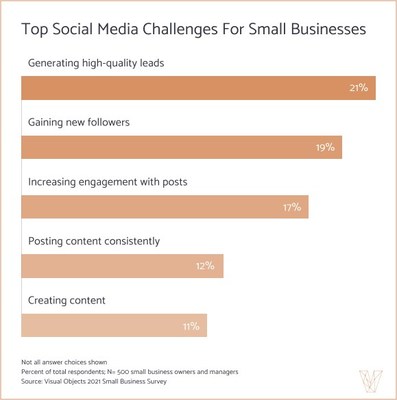Social media challenges for businesses include maintaining engagement and adapting to algorithm changes. Creating consistent, quality content that resonates with target audiences is vital.
Navigating the ever-evolving landscape of social media poses a unique set of challenges for businesses striving to enhance their online presence. With the influx of platforms and the constant updates to their algorithms, staying ahead of the curve requires a nimble and strategic approach.
Companies must craft content that not only captures attention but also fosters meaningful interactions to ensure a loyal following. Balancing promotional material with engaging, informative posts is crucial to avoid audience fatigue and maintain a strong digital footprint. Moreover, businesses need to monitor analytics closely to understand user behavior and preferences, allowing them to tailor their strategies effectively. The heart of overcoming these challenges lies in a business’s ability to remain adaptable, authentic, and attuned to its community’s needs.
The Rise Of Social Media In Business
The digital landscape has shifted dramatically, with social media’s role in business skyrocketing. Brands now see social media as a critical platform for marketing and engagement. From small startups to large corporations, harnessing the power of these networks is no longer optional but a necessity for competing in today’s marketplace.
Interactions on social media can significantly impact a company’s reputation and customer relationships. With each tweet, post, or share, businesses are finding new ways to reach customers, promote their products, and create communities. The integral role of social media in modern marketing strategies is undeniable, helping firms to connect with a wider audience more effectively than ever before.

Credit: blog.hubspot.com
Potential Pitfalls For Businesses
Navigating platform algorithms is tricky for businesses. Social media sites often change how they show posts. This means constant adaptation is vital to stay visible. It’s important to engage with trends and use relevant hashtags.
Maintaining a consistent brand image can be challenging. A business must share quality content regularly. The tone must match the brand’s voice. Visuals need to be professional and on-brand.
Dealing with privacy and data security is critical. A single breach can damage trust. Therefore, investing in strong security measures is essential. Businesses must also respect customer privacy. This will help build a strong reputation.
Authenticity Vs. Professionalism
Navigating the social media landscape as a business demands a delicate balance. Authenticity draws customers closer, creating a sense of trust and connection. Yet, professionalism should never take a back seat. Displaying a consistent and polished image reassures customers of a business’s reliability and expertise.
To strike the right balance, businesses often look up to success stories. Consider a small organic food store that shared behind-the-scenes stories. They used raw, unfiltered content to showcase their day-to-day operations. The brand’s warmth attracted a large audience without compromising professional quality. On the other side, a tech firm’s overly casual tweets resulted in a confused audience. Their casual tone mixed with industry jargon didn’t resonate well with their followers.
Approaching social media with a strategic balance is the key. It can be the difference between an engaged audience and a disconnected one.
The Metrics Maze
Businesses often struggle to understand social media metrics. Engagement and reach are two key terms. They are different but very important. Engagement means that people are interacting with content. This includes likes, comments, and shares. Reach, on the other hand, is about how many see the content. It does not mean they interact with it.
Knowing how to measure ROI, or return on investment, is tough. Many factors affect ROI, so it’s not just about sales. It can be about brand awareness or customer loyalty too. A deeper look into analytics is needed to measure success. This can be tricky and time-consuming for businesses.
Adapting To Changing Trends
Businesses face many challenges on social media. New trends pop up quickly. Staying up-to-date is tough. Social platforms constantly change their features. Companies must adapt fast to these changes.
Listening to user feedback is crucial. It helps improve social media strategies. Engaging with audience comments shapes better content. Users provide valuable insights. Companies that use this feedback can improve their social media game.

Credit: www.spiceworks.com
Crisis Management In The Social Arena
Developing a response strategy for social media crises is key. Businesses must act swiftly to upkeep their reputation. Crafting a plan ensures you’re ready before issues arise.
Identifying possible risks and preparing communication protocols is crucial. A team should be set for monitoring and responding to online feedback. Quick and transparent communication often reduces negative impacts.
Learning from social media backlashes provides valuable insights. Businesses should note what triggered the issue and how it escalated. Understanding the root cause helps in preventing future problems. Adapting policies accordingly strengthens the brand’s resilience.

Credit: www.prnewswire.com
Conclusion
Navigating social media landscapes can be daunting, yet it’s crucial for modern businesses. By understanding the challenges outlined, companies can thrive online. Engage with your audience, adapt strategies, and remain authentic. Tailor your approach, leverage data, and remember, consistency is key to overcoming these hurdles.
Let’s embrace social media’s dynamic nature together.











